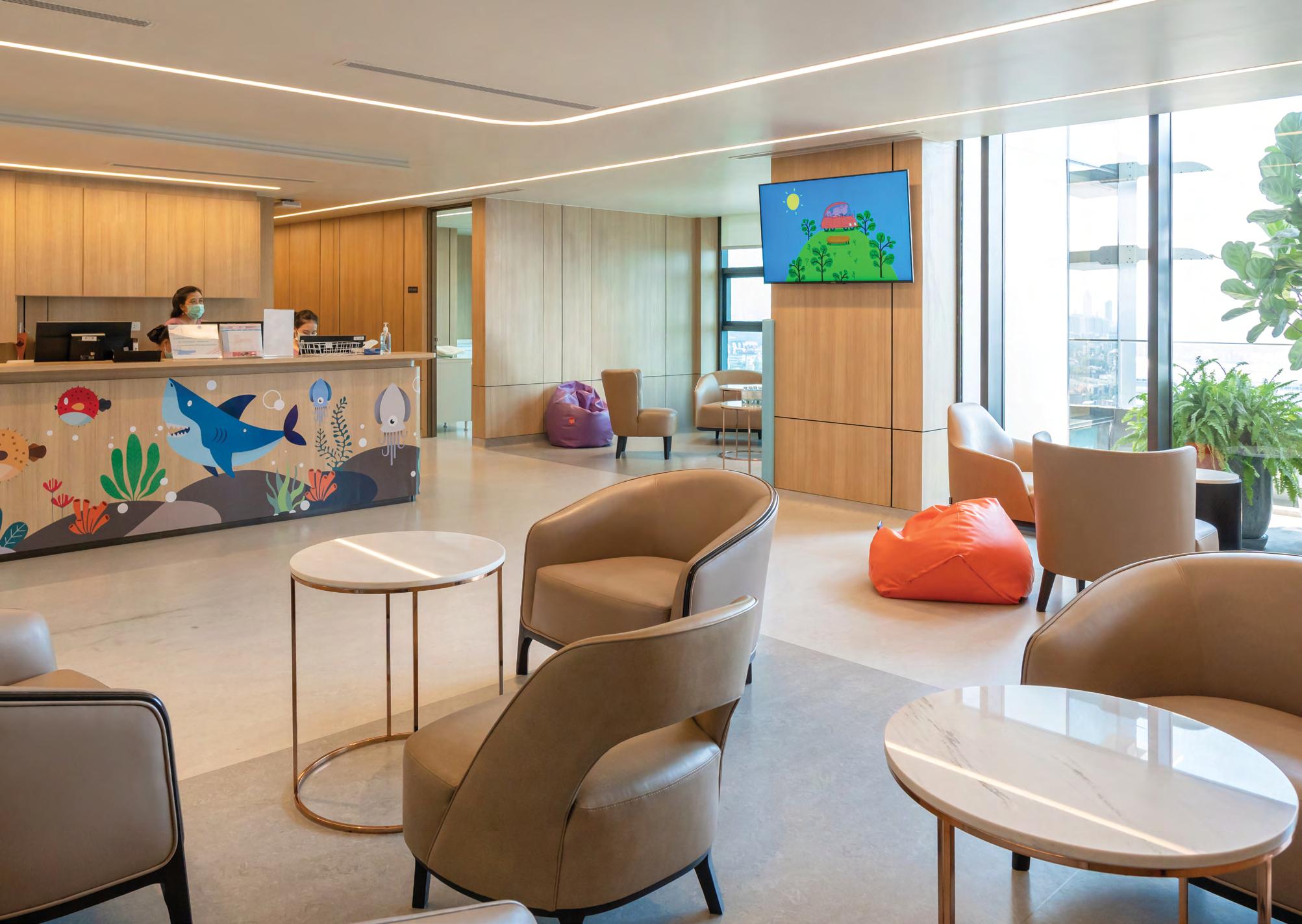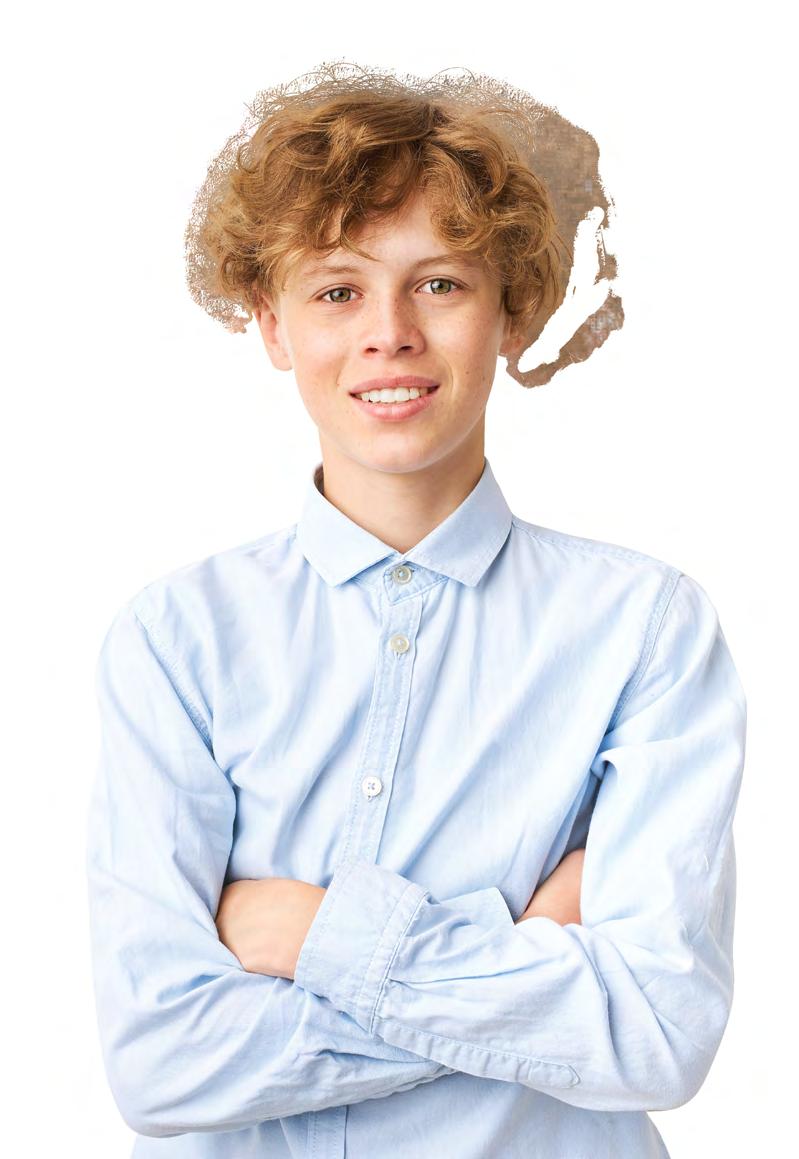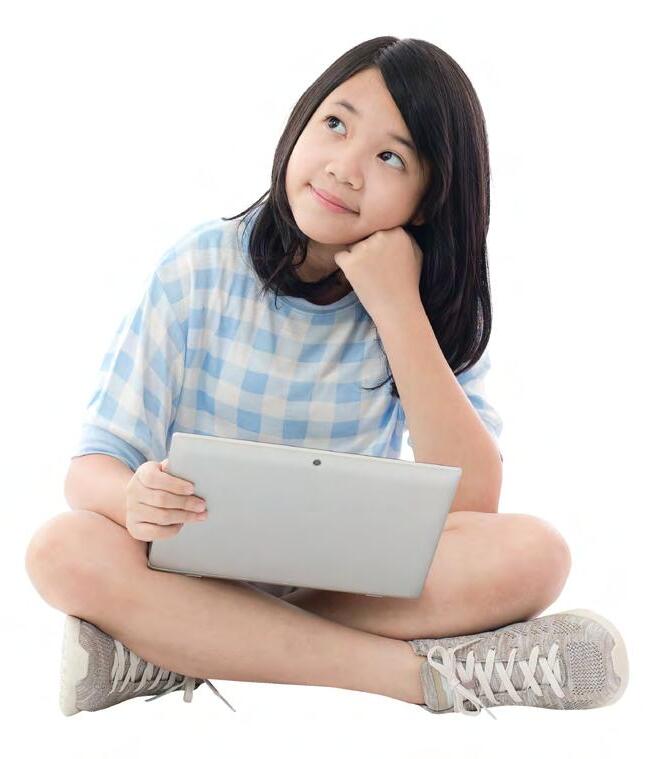
















































































By Dylan Jones, Primary Class Teacher, 2017-2025
When I joined Bangkok Patana School in August 2017, I already knew of its fantastic reputation. Having lived and worked in Bangkok before, I was excited to begin this new chapter, and I was not disappointed. Over the past eight years, I’ve had the privilege of being part of a truly remarkable community.
From unforgettable residential trips to the daily joy of working with our amazing students, I have been constantly inspired. Our students’ energy and curiosity made every day feel meaningful, and the support and involvement from parents helped foster a wonderfully collaborative spirit. The staff, too, have made a lasting impact — colleagues who quickly became friends, and now feel like family.
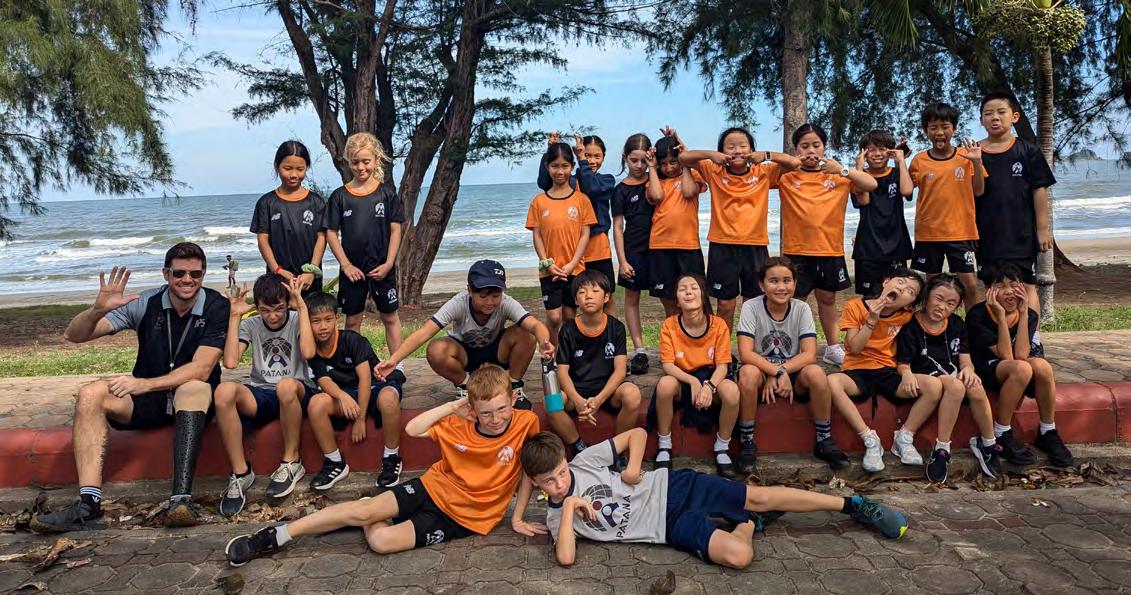
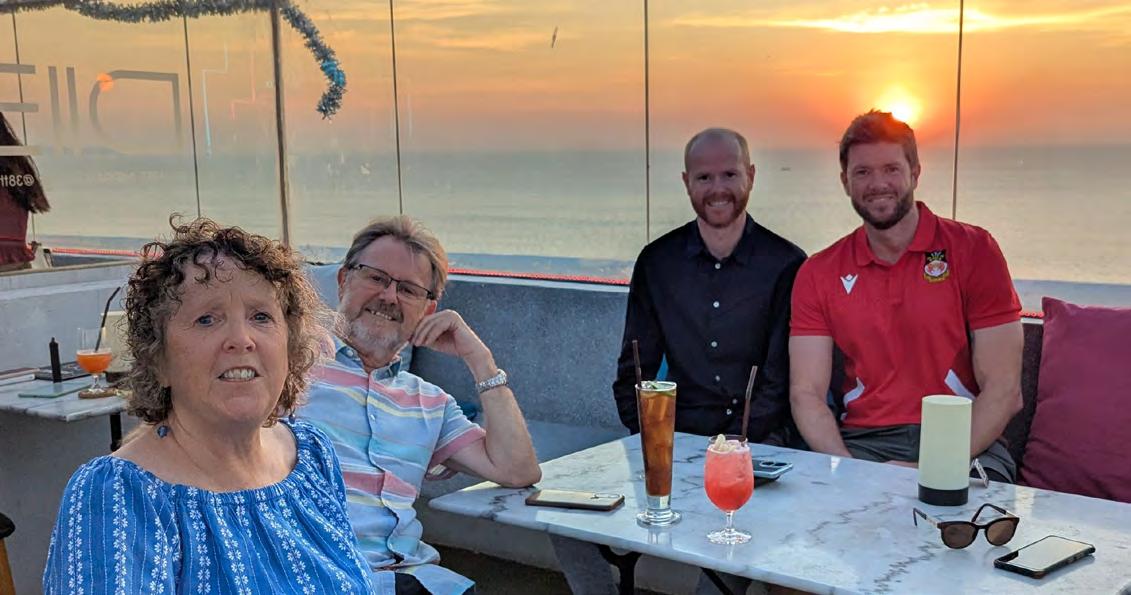
There have been so many memorable moments, from annual staff golf trips to Hua Hin, to lively football tours in Vietnam. Living in a city as vibrant and ever-changing as Bangkok only added to the richness of the experience. But it hasn’t always been easy. A serious accident and the loss of my leg brought immense challenges, but it was in those tough times that I truly felt the strength of the Patana community. The kindness, care, and unwavering support I received will stay with me always.
As I prepare for the next chapter, back to Wales to spend time with family, I do so with immense gratitude for the memories, the friendships, and the journey that has shaped me. Bangkok Patana will always hold a special place in my heart.

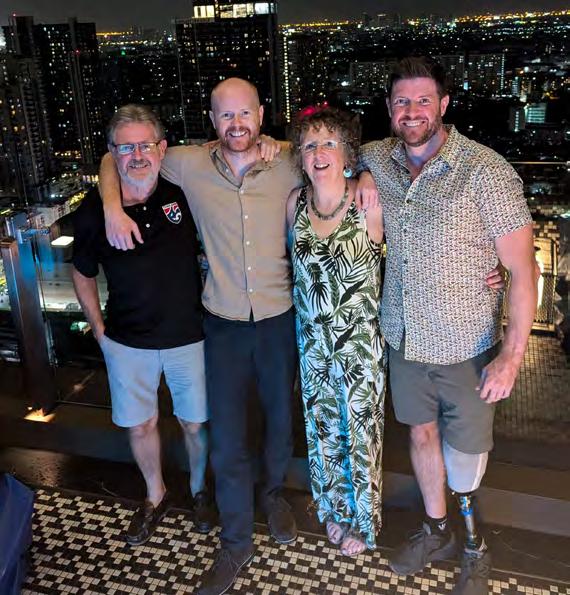
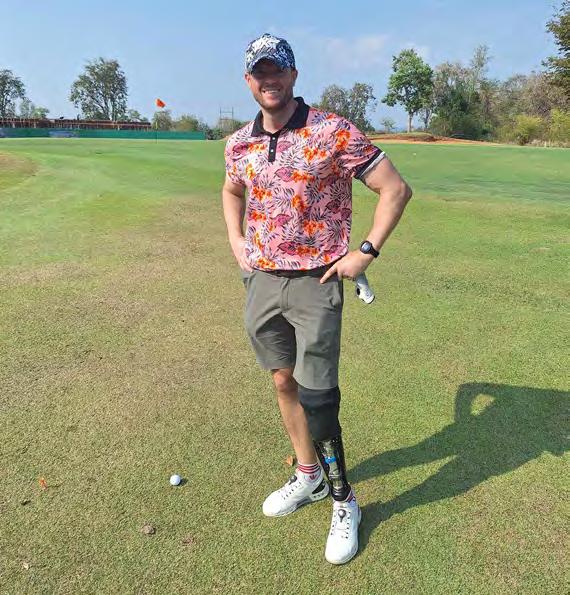
643 Lasalle Road (Sukhumvit 105)
Bangna Tai, Bangna
Bangkok 10260 Thailand
Tel: +66 (0) 2785 2200
Email: reception@patana.ac.th www.patana.ac.th
Editor: Sneha Mathew
Tel: +66 (0) 2785 2411
Email: snma@patana.ac.th
Advertisement: Finn Balslev
Tel: 081-866-2577
Email: finn@scandmedia.com
Design & Production: Scand-Media Corp., Ltd.
Tel: +66 (0) 2943 7166-8 www.scandmedia.com
Bangkok Patana Magazine is the termly publication of Bangkok Patana School published three times per year and distributed to 2,000 members of the School community. Reproduction of articles, artwork and illustrations by written permission only. This magazine is printed on recycled paper.
Bangkok Patana School



Bangkok Patana School is honoured to celebrate the dedication of the employees listed below, who have served 15-years and more at the school. To put this into perspective: Our 35-year employees started around the time when School was gearing up to move to a new location from Soi Navin to its current location in Soi Lasalle; our 30-year employees started in the year when school got the approval to teach IB diploma programme and 22 students make up the first ever graduating class of Bangkok Patana School; our
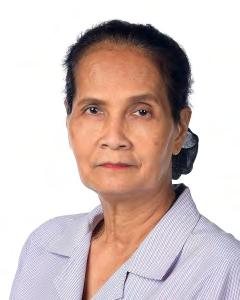

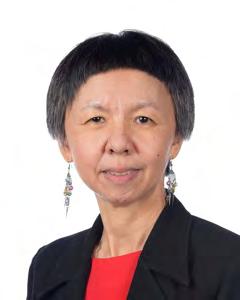


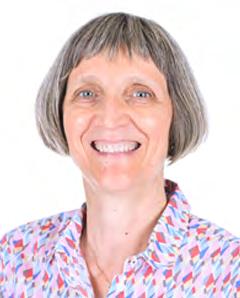
25-year employees began the year when TigerSharks Swim Club was formed; our 20-year employees the year Gymnastics Club was founded, paving the way for the current Gymnastics Academy; our 15-year employees around the time when the Arts Centre was opened, featuring two theatres and specialised features for music, visual arts and drama. When you see them on campus, be sure to ask them to recount some of their most interesting and fondest memories of the school.


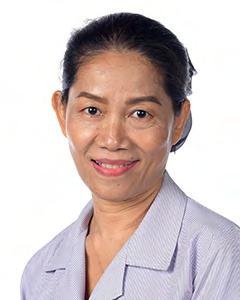


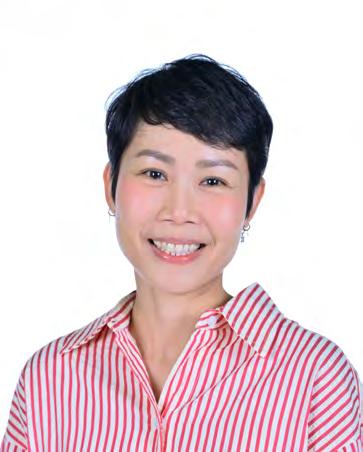
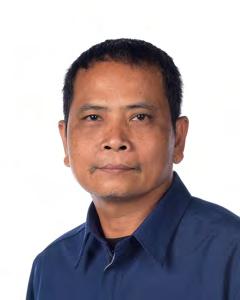
20 Years
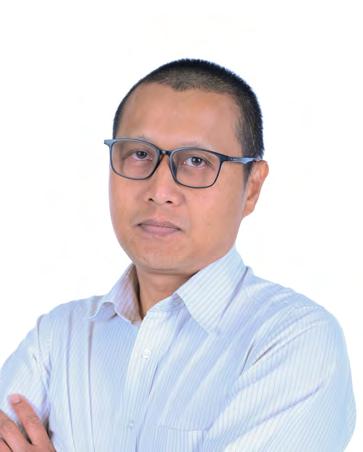
20 Years

15 Years
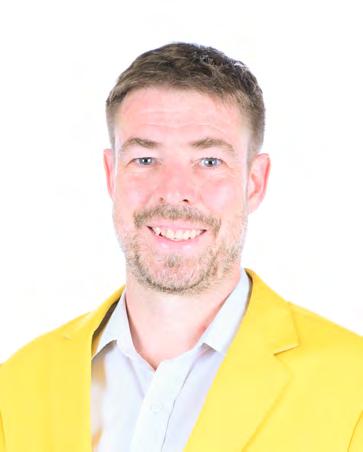
15 Years
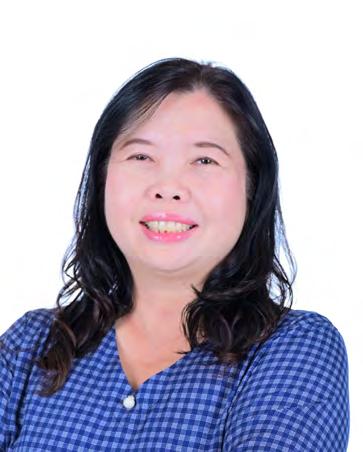

20 Years

15 Years

15 Years


15 Years

15 Years

15 Years
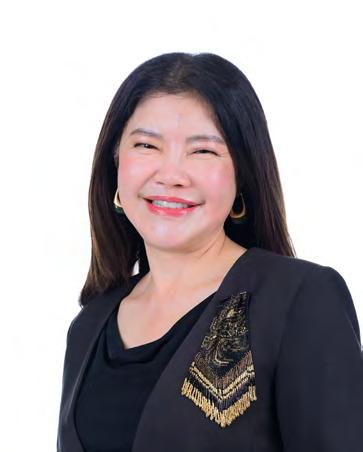
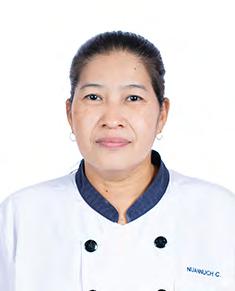
15 Years
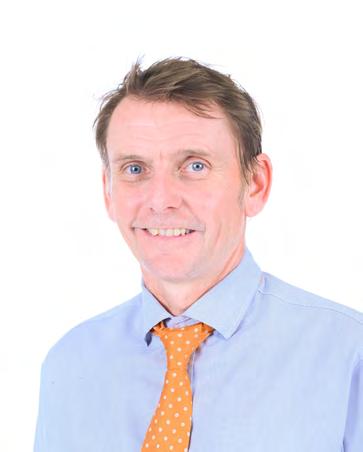
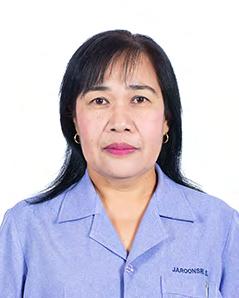
By Caroline Ferguson, Leader of Global Citizenship Curriculum and Community Engagement
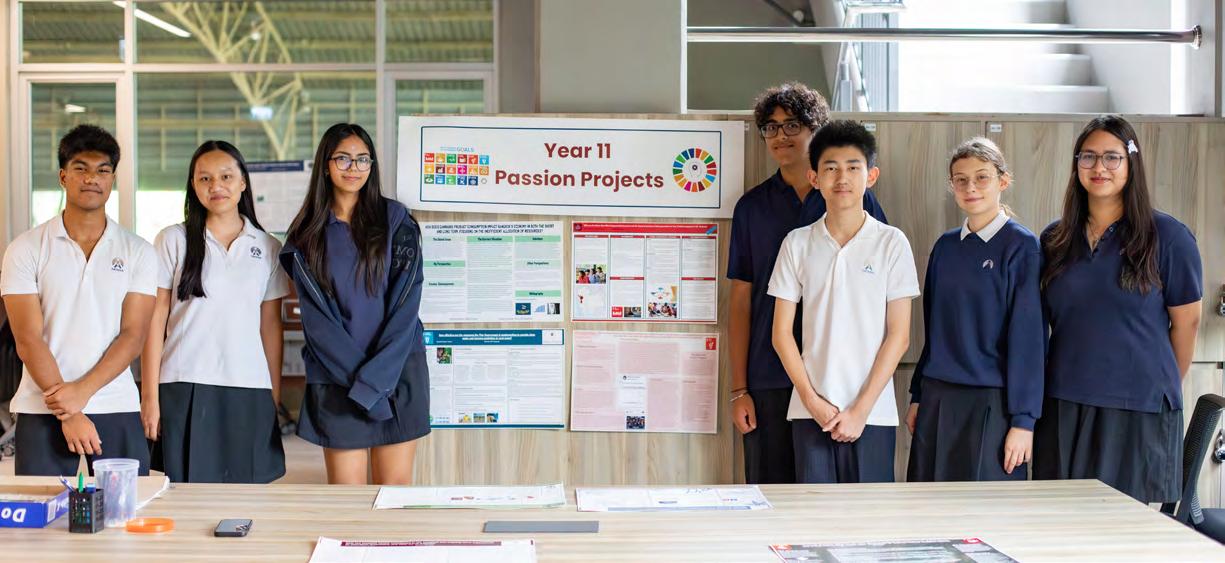


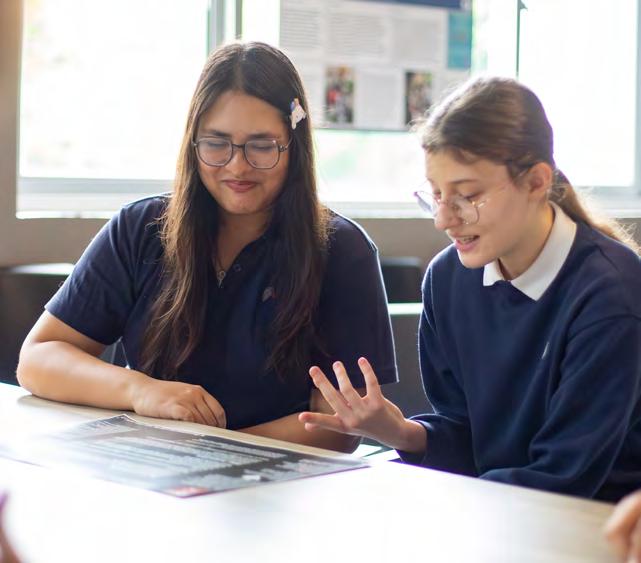
Through research, service and reflection, students transform their passions into purposeful action for a better future.
How Do We Develop Global Citizens?
A global citizen is someone who engages with the issues our world faces
cognitively, emotionally and behaviourally — in other words, they think, feel and act to make the world a better place (see figure 1 below). They are educated about global issues and have the skills to think critically, they feel connected to others and are respectful of diversity and they act to bring about positive change in their world.

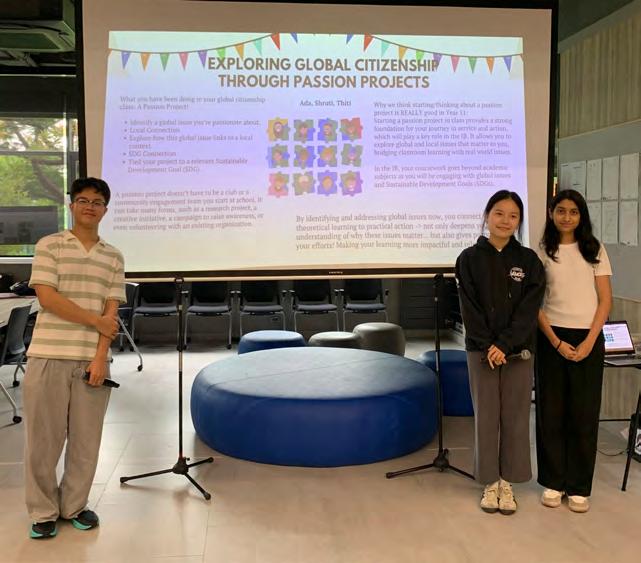

The Global Citizenship course for Key Stage 4 (Figure 2) students focuses on developing these attributes in our Year 10 and 11 students. The course aims to:
• Develop students as global citizens;
• Prepare students for the core of the IB Diploma and Careers-related Programmes;
• Support students in self-evaluation and help them to find fulfilment in their lives.
At the end of the course, Year 11 students engage in their personal Passion Projects. This project links directly to future learning: students who pursue their passions not only strengthen their academic learning and research skills but also lay a foundation for successful Community Engagement experiences, CAS and Service Learning projects, World Studies Extended Essays, university applications and even future career choices.




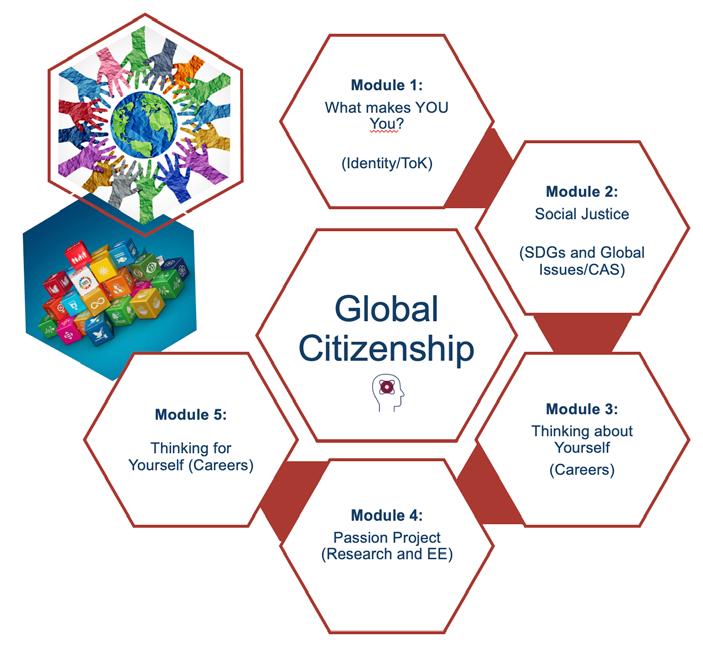
Figure 2: Global Citizenship for Key Stage 4
Through the Passion Project, students explore one global issue, pose a research question and conduct research into its causes, impacts and solutions, ultimately producing a detailed research proposal. Along the way, they develop key skills: framing research questions, conducting effective research and referencing, presenting their ideas and giving and receiving peer feedback. This project is the culmination of their two-year Global Citizenship journey.
The outcome of this module is the Passion Project Poster Presentation. Students present their work to each other, offering an opportunity for peer review and feedback. This year, students from Grad ‘27 and their teachers selected a number of exemplary posters, which were printed and displayed around the school. Research questions tackled a wide range of issues from ‘What are the factors that affect intergenerational poverty and the impact of poverty on future generations in Trat, Thailand compared to Tak, Thailand?’ (Andy Isaac) to ‘To what extent is climate change impacting the future viability of the Winter Olympics?’ (Valerie Luedi).
At our final celebratory assembly, these posters were shared and students also heard from three Year 13 students, Ada,

Thiti and Shruti, who reflected on how following their passions had been central to their learning journey — and how they would guide their futures.
Engaging in this project helps students to develop research skills that will support their future studies. As one student reflected: “I learned about research and citation skills that will help me prepare for IB.”
They also deepen their understanding of global issues at both local and international scales. In a survey of Grad ‘27, 93% of students said they had developed a deeper understanding of their chosen global issue through their Passion Project, with over 68% responding that they learned a lot. Some of the students’ reflections capture this learning vividly:
“In my Passion Project I learnt about the importance of Global Issues, and how raising awareness makes me a better person who can reflect on this in university and outside of school.”
“There are many different sides to an issue and you need to take a lot of different things into account when trying to do something about it.”
“I learnt how multiple SDGs can connect to each other.”
Many students reflected on the specific topics they had explored. One student commented that “Socio-economic factors and gender inequality greatly impact education for girls in low-income countries. I researched the effect Covid-19 had on school closures and more — the statistics were shocking.”
Students are also encouraged to take their passions beyond the classroom. Over 90% of students indicated that they would be likely to engage in a community







engagement (or service) experience linked to their Passion Project.
The Passion Project also connects to future pathways, supporting success in the IB, and strengthening university applications and career choices. This was highlighted in the presentation from our Year 13 students, Ada, Thiti and Shruti:
“Starting a Passion Project in Year 11 is good because it will provide a strong foundation for your journey in service, which will play a key role in the IB.”
Ada, who is hoping to pursue a career in medicine, exemplifies the powerful link between passion, service and academic learning:
“My passion for understanding CVD, nutritio, and disparities in healthcare has been the basis for my community engagement team, Healing Hearts, and several academic projects, including my World Studies Extended Essay on how socioeconomic disparities in Thailand relate to the incidence or risk factors for CVD.” — Karnpichcha (Ada) Chanyarakskul
The Passion Project helps students to develop critical thinking skills, build an ethical foundation through empathy and foster a commitment to community engagement. It also provides a solid grounding for their IB Diploma or Career Programme studies and, for many, will form the thread that connects university applications and even future career paths.
“Follow your passion. It will lead you to your purpose.”
— Oprah Winfrey
References:
UNESCO. “Global Citizenship Education: Topics and Learning Objectives.” Unesco.org, 2015, unesdoc.unesco.org/ ark:/48223/pf0000232993
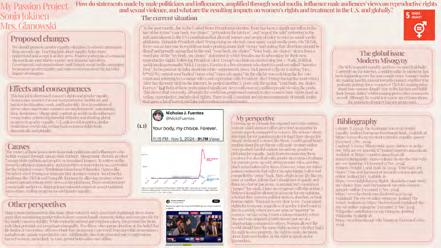








By Ross Corker, Chris Ferne, Andrew Roff and Marie-Claire Redman
Our Year 12 students are the first cohort to take the IB Career-related Programme at Bangkok Patana School. We have built this programme to respond to the passions of our students and to allow them to pursue their passions through their Career Related Study and the IBCP’s Core Components. We are pleased to present some of the highlights of each of these over the academic year to date.
Our first group of IBCP students are specialising in Art and Design, working towards a BTEC International Level 3 Diploma, alongside selected IB Diploma courses and the IBCP Core. Their learning is a combination of creative exploration, real-world projects and skills development. Students are building strong technical skills across a wide range of materials and digital processes, while also developing confidence, independence and a professional approach.
A real highlight of the course has been the first Inspiration Week to Chiang Rai. Students met with local industries, including coffee and tea producers, and spent time learning from local craftspeople. They used this experience to create a documentary film, building skills in storytelling, filming and editing, while deepening their understanding of culture, creativity and sustainable practices in northern Thailand.
It has been a busy and rewarding year. Students have completed two major assignments, including the themed projects Journeys and Through the Senses, both designed to build strong foundations and encourage personal responses. They have worked with visiting artists, including a three-day workshop with Ian Murphy, and responded to live client briefs. More recently, we have introduced a new project in collaboration with True Digital Park, giving students the opportunity to create work for a professional exhibition, as part of their Industries Week, in Bangkok later this year.
It has been inspiring to see the students’ growth in such a short space of time – both in their creative practice and their confidence as young professionals. We look forward to sharing their work with the wider school community at upcoming exhibitions and events and celebrating all that they continue to achieve through this exciting new programme.
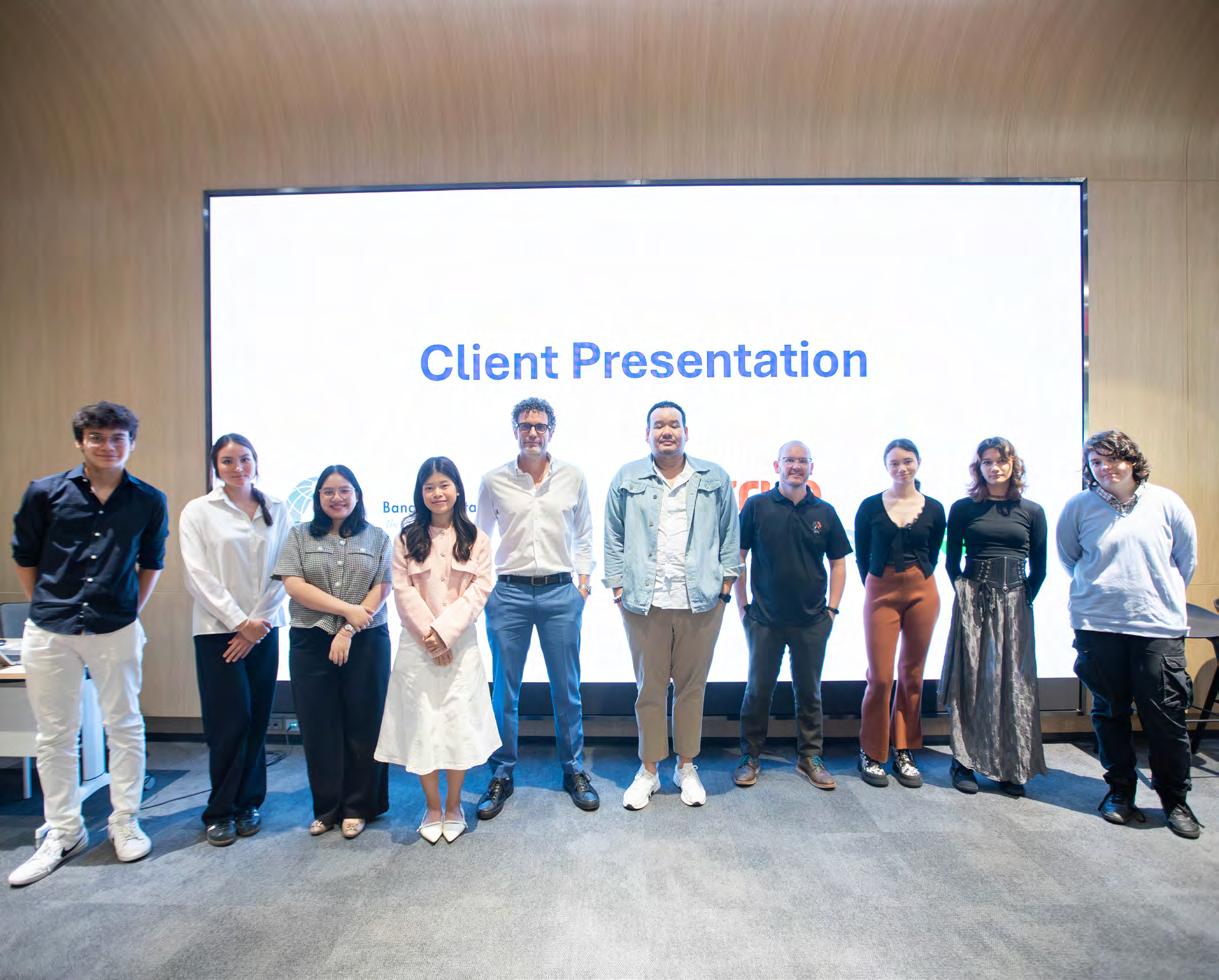

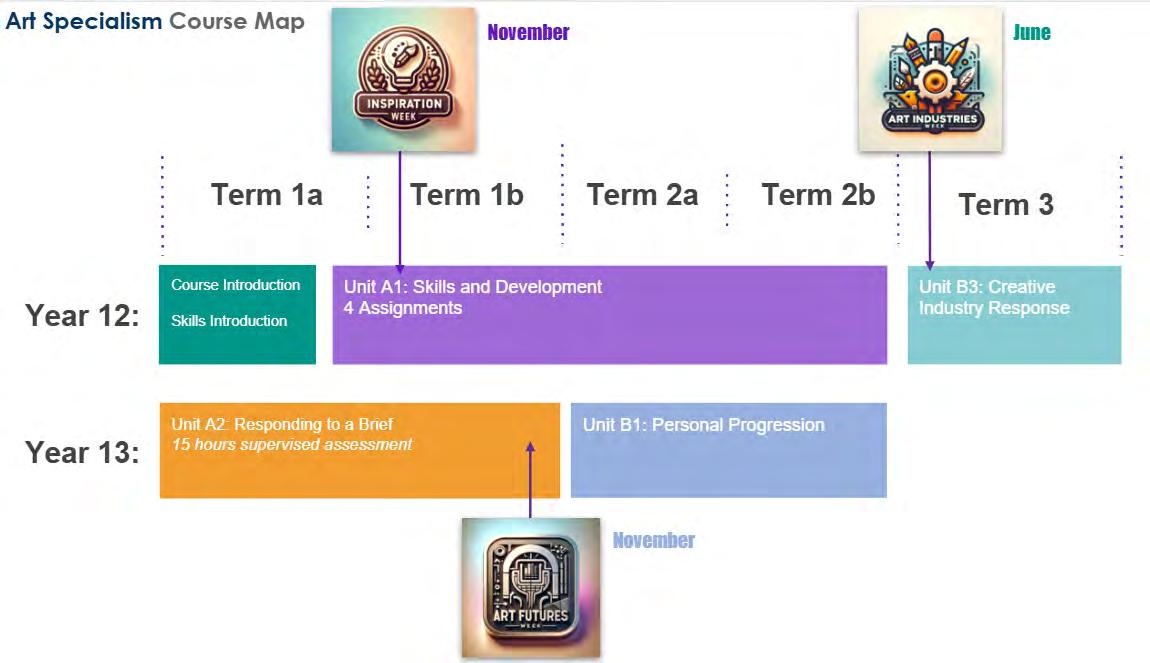
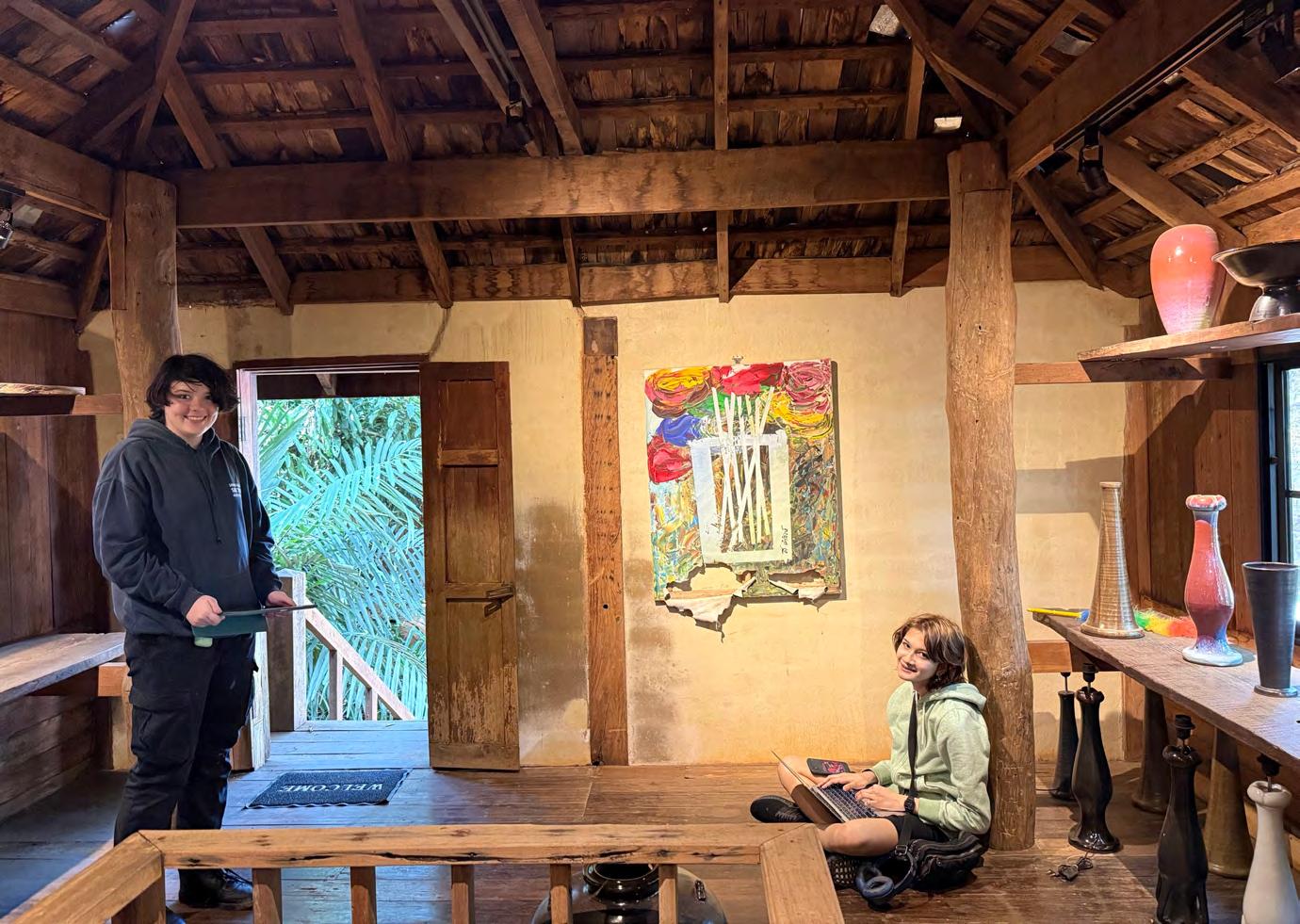
The Personal and Professional Skills course has been very much co-constructed with the students, responding to their particular interests; identifying their needs and areas for growth as they look towards careers in the arts. Our lessons have been quite project based, often client centred and occasionally replicating ‘The Apprentice’ style challenges. Students have spent time developing their presentation skills - delivering to both the school’s Steering Committee (even more daunting for the students) and the Secondary teaching faculty; constructing their Curriculum Vitaes with our Careers Team; writing proposals and coming up with designs for new studio spaces; filming the Christmas Assembly and taking charge of the building and publication of the Gradbook for the graduating class of 2025.
Term 3 will shift focus to personal skills for independent living allowing students to explore planning and cooking for themselves; laundering; fixing and odd-jobbing and personal finance.

At the end of Term 1, the Art specialists joined the Primary Art Club ECA with the intention of offering a range of supported activities to our younger students. This was a huge success, with brilliant relationships built and the Year 12 students learning loads about planning and executing a successful activity with young children. We wove bracelets; drew Sonic and Pikachu; sculpted animals; created masks and made slime. Having then reflected on the merits and possible improvements to the project the students took their work off-site and have spent Term 2 travelling to Likhit Daycare on Tuesday afternoons to run similar activities with the children there - an opportunity to realise and re-invest our privilege and engage with children from a very different context.





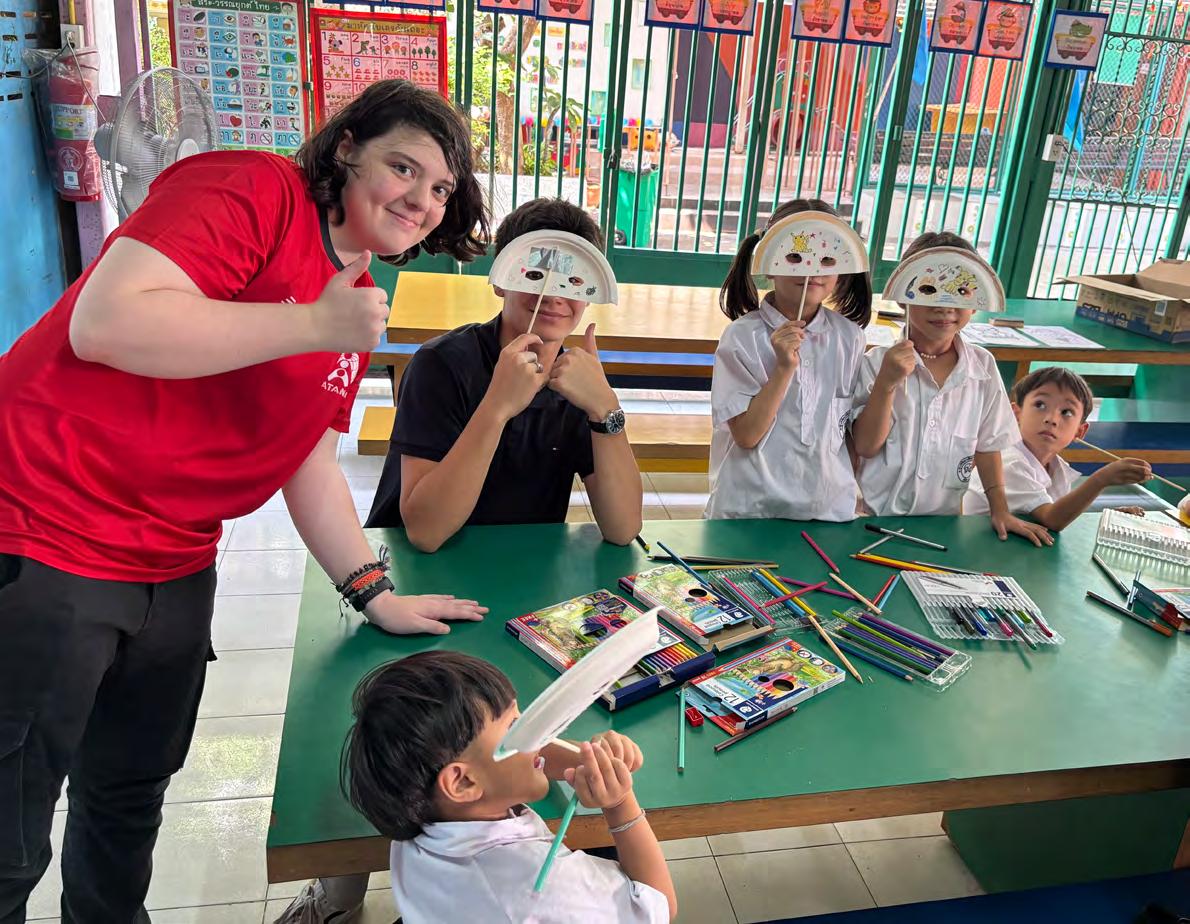
Throughout their two-year programme IBCP students must maintain a continued commitment to language development. Our students are studying a range of languages: Thai, French, Spanish and even British Sign Language. Students have a lesson each week and consolidate this with home learning, which they document and use to apply back to the other elements of their programme. For example, one of our students taught children in Foundation Stage to sing their Christmas Carols, and students have linked their cooking projects to the culture of their chosen language.

The Reflective Project is a key component of the IB Core that is essential for all students. This project gives students their first experience of real-life academic research, where they select a topical issue within their career-related studies; an example in the BTEC Arts course could be commercialism in the world of designed products and then dig into an ethical dilemma within this issue; for example, ‘Is it right to design children’s clothes with references to music artists that may sing about adult or problematic themes in their songs?’ The students then have the challenge to refine this dilemma into a formal research question

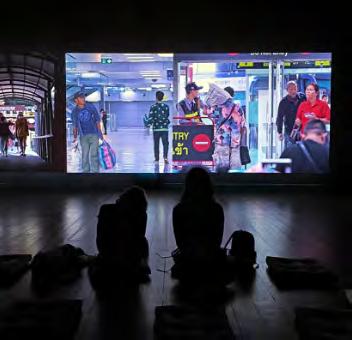
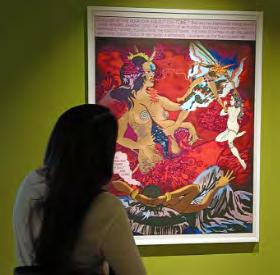
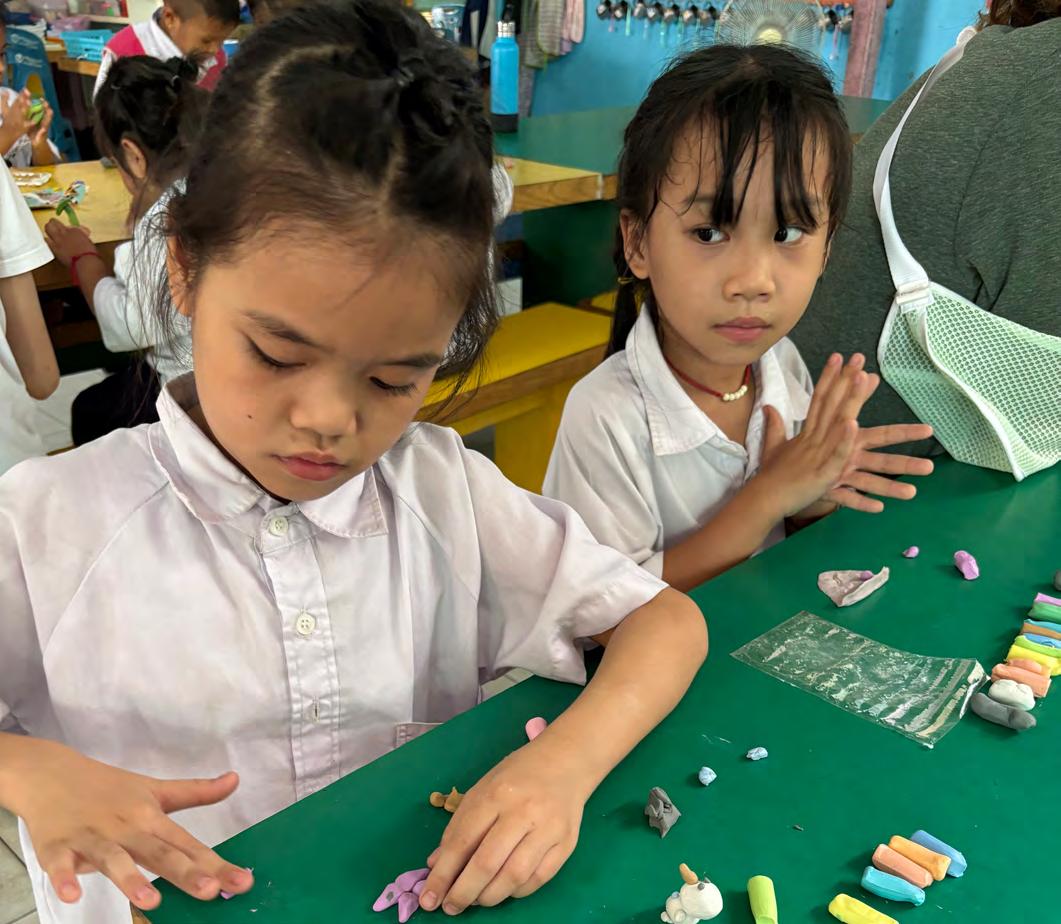
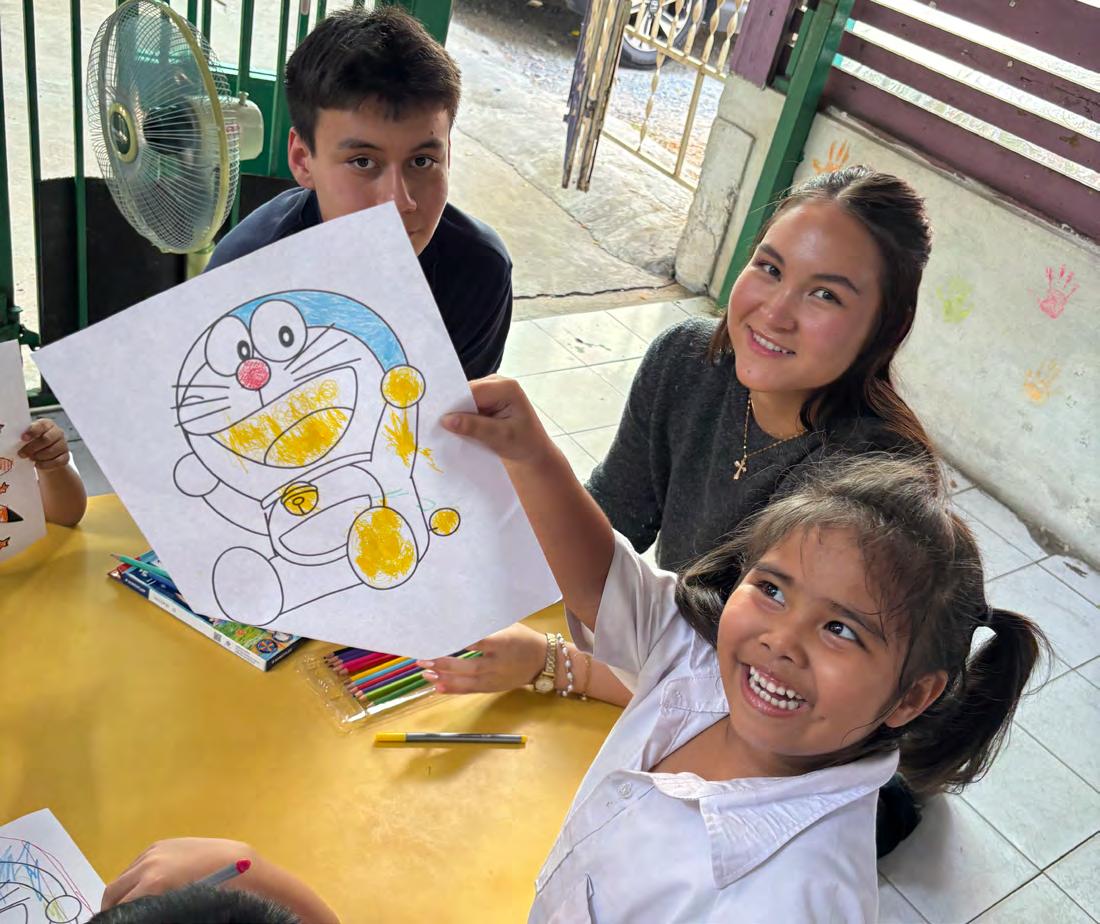
which gives them potential for in depth study, whilst being answerable within the scope of the assignment.
The most exciting part of the Reflective Project is the range of submission modes available; students can choose from completing the assignment as a traditional essay of 3,000 words, or by writing a shorter written submission accompanied by a visual display of still images, a play, short film, interview or spoken presentation. This gives the students hands-on experience of how important issues are lobbied or raised in the

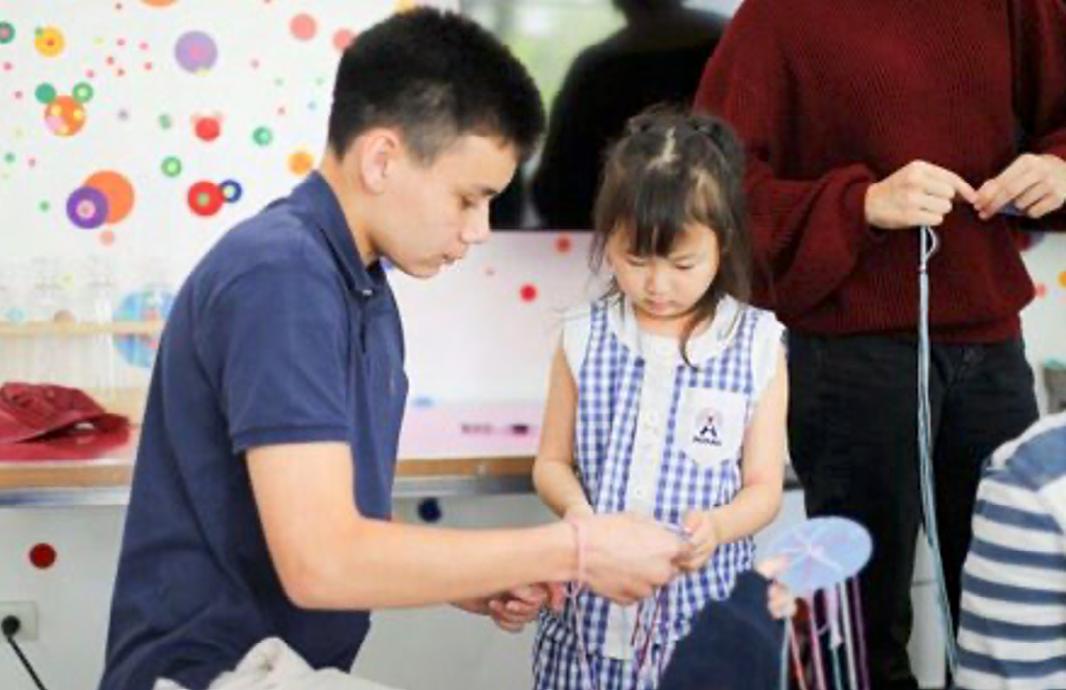
public sphere and helps them make use of a broader range of their own communication skills to show different perspectives on the issue. This year’s cohort of students have already had some opportunity to see how this is done by professionals, by observing a short film by Som Supaparinya, based on the experiences of migrant workers in Northern Thailand, on their trip to the National Gallery earlier this year.

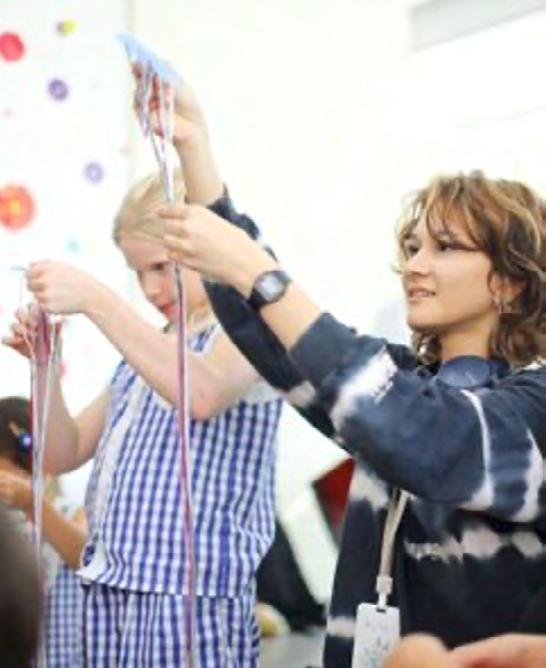
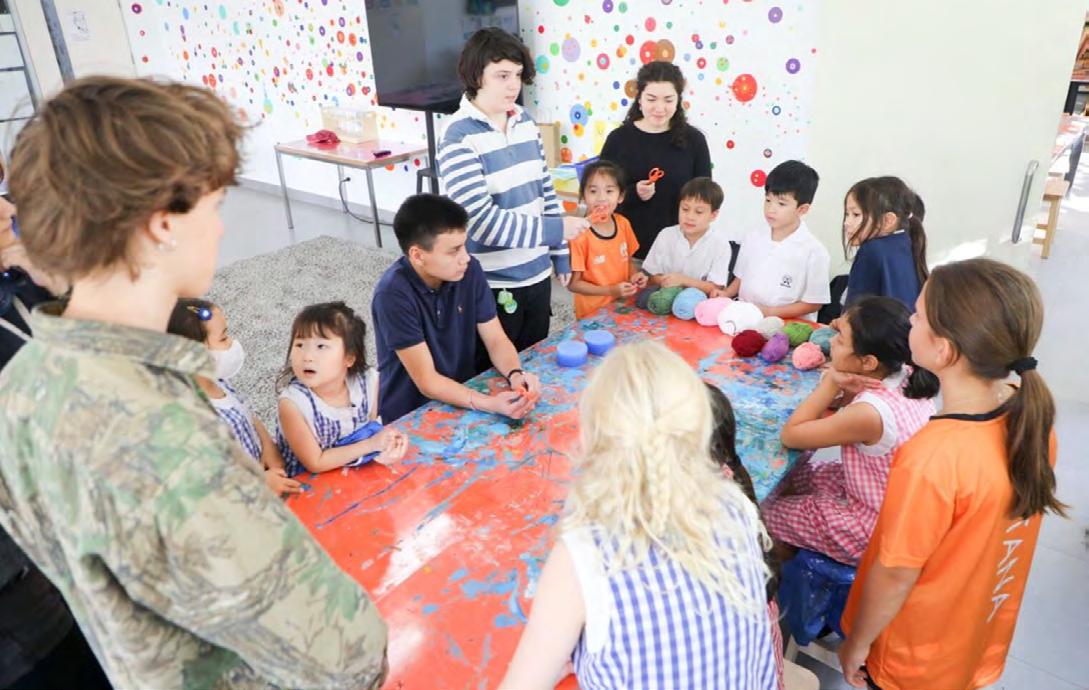
By Kim Ekstrom and Andrew Haughton, Careers and Universities Counsellors
Bangkok Patana School is a place for self-discovery, where students can explore their interests through academic, extracurricular and super curricular activities. As our students navigate secondary, they’re not just attending lessons; they are building their unique story, and this is more than just a list of achievements; it encompasses the experiences, challenges and personal growth that accompanies each activity.
In Year 13, students are expected to articulate their story through college essays, personal statements, letters of motivation, interviews and portfolios.
When applying to UK universities and some European and Asian institutions, students explain why they have chosen and are excited to apply for a specific university course. This enthusiasm can be showcased through subject exploration and activities that happen beyond what is learnt in school:
• Read books about your subject, specialist magazines and journals
• Browse websites related to your subject
• Visit museums, exhibitions and galleries
• Listen to podcasts, watch films and documentaries
• Attend seminars and lectures, online or in person
• Volunteer, or gain work experience that’s relevant to your course
• Take part in academic competitions or projects
In the United States, the college application process goes beyond academic interest and ability. They are not only interested in what subjects spark a student’s curiosity but also in the values and characteristics that define them. They want to understand the impact the student has had on their school and wider community. This impact becomes a crucial element of this story, weaving together academic interests with personal values and community engagement.
Consider a student passionate about environmental science. Their story could involve participation in a local conservation project, conducting independent research on local ecosystems, or even supporting a schoolwide recycling programme. These experiences demonstrate active engagement, initiative, and time management skills.
For students interested in Sport Science, their story may involve organising a charity tennis competition, volunteering as a golf coach, shadowing a physiotherapist, or writing their 4,000-word independently researched Extended Essay on a sport related topic.
Explore diverse interests: Patana is the perfect place to try new things. Participate in one of the many community engagement clubs, try out a new sport, learn a musical instrument, write articles
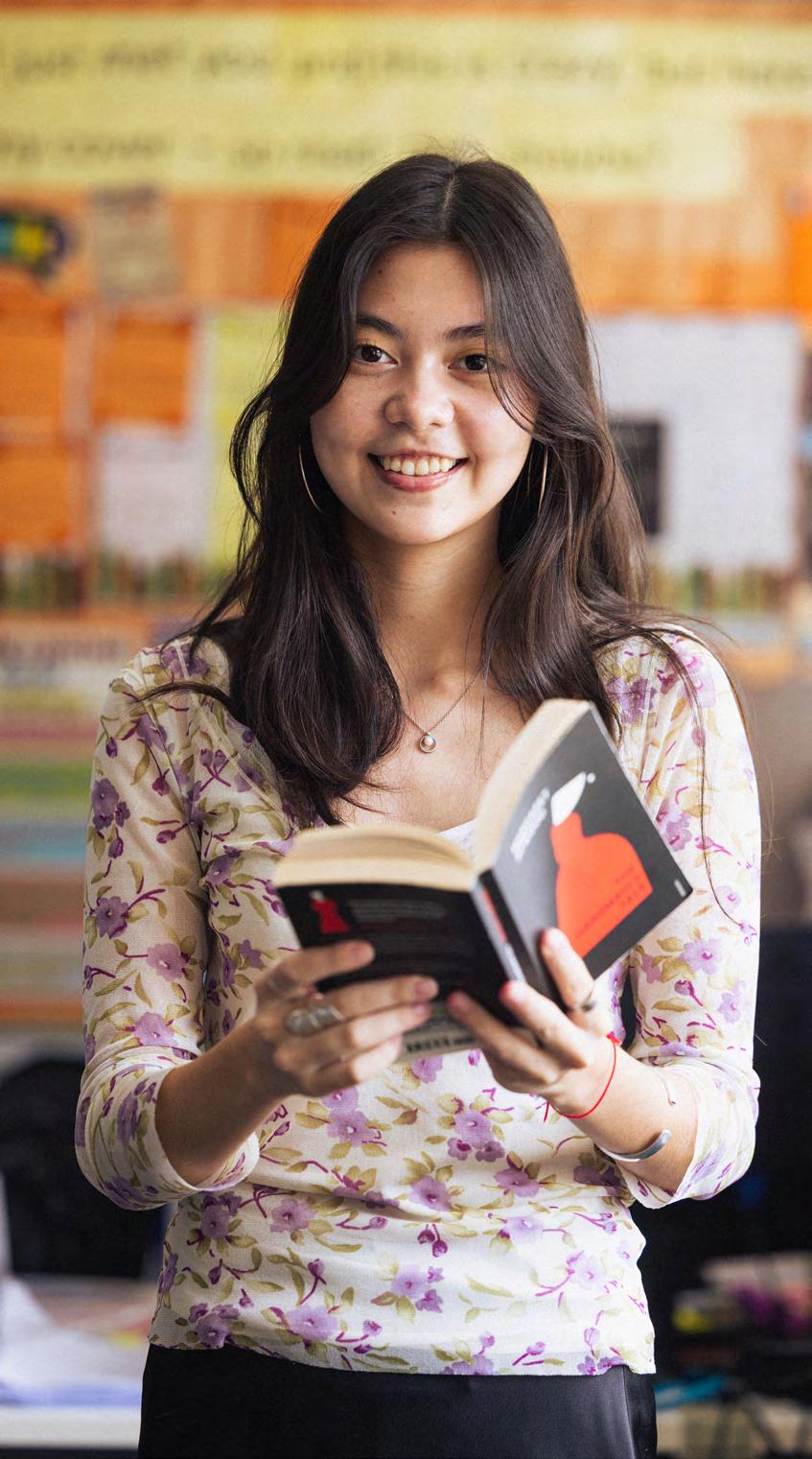
for Scientia Magazine, or become a member of the Politics, Philosophy, Law and Economics ECA discussion group. Each experience contributes to the richness of your story.
Document your journey: Keep a record of your ECAs, achievements, and personal reflections, as these will serve as a valuable resource when the time comes to start writing your university essays.
Reflect on impact: When engaging in activities, it is important to consider its impact on yourself and others. How have these experiences shaped your values skills and perspectives? In what ways have you had a positive impact on our school environment and the lives of others? Reflecting on impact will add depth and authenticity to your story.

Amy Brettell will be reading English Literature at the University of Leeds. Her love for literature, creative writing and storytelling led her to participate in Nottingham Trent University’s Creative Writing summer course. Here she developed her analytical and editing skills, as well as push her devotion to the craft of writing. Back at Patana, she was Editor of Core Magazine and her interest in Biology led her to write several science related articles for our Patana News community magazine. Amy took the initiative to carry out a 4-week work experience placement in our primary school where she supported children across a range of subjects, including maths, and literacy.
Benjamin Lu will be studying a Bachelor of Cinema and Audiovisual Arts at the Institut International de l’Image et du Son, France. Ben is an aspiring film director who has been an active member of our performing arts community, playing roles in Bugsy Malone, The Crucible and

Grease. He has created several short films such as ‘The Sock Thief’ and ‘Out of the Rain’, through which he developed his script writing, camera operation, and set management as well as his collaborative, organisational and communication skills.
Trinity Jantarach will be studying Health and Human Biology while pursuing a pre-med track at Brown University. In school, she founded the Science Pioneers club, where she and her peers encouraged younger students to explore science beyond the classroom.
During her volunteering at the Mercy Centre in Klong Toey, she observed some children suffering from ringworm who used steroid cream to treat it. Inspired by this, she supported graduate students’ research into pathogenic fungi at the Mahidol University’s Faculty of Science and for ten months analysed the antifungal properties of Snake Jasmine, advancing her lab techniques along the way. Trinity is a talented pianist and takes every opportunity to perform both in school events such as Patana Unplugged and at Carnegie Hall.

Shuhan Ye will be playing Division I women’s golf and studying Economics at Sacred Heart University in the US. During her first week in Senior Studies, she tried out for the Girls’ Varsity Golf Team and was voted Captain within 3 weeks. She has since represented Patana in both regional and international competitions, collecting trophies and accolades including ‘Girls individual SEASAC winner’ and ‘Most Valued Player’.
Shuhan is proud of achieving the Duke of Edinburgh’s Gold Award, which she describes as one of the most challenging and rewarding accomplishments of her life. She was an assistant golf coach for the younger students in our school and active member of Likhit, where she was part of a team that created fun activities for local primary aged Thai pupils that visit from a local orphanage. These experiences taught her valuable leadership and organizational skills and showed the impact a team can make when united for a good cause.
Her ability to balance the rigours of the IB curriculum along with her golf and service engagement commitments will serve her well in the future.

By Key Stage 2 Curriculum Leads
Bangkok Patana School recognises the imperative role of community when unlocking student potential. For this reason, informing, enabling and including parents in their child’s academic journey is paramount to our success as a school.
During this academic year, several of our curriculum leaders have hosted parent workshops based around the teaching of Mathematics in the Primary School. These workshops have showcased the learning opportunities provided to our students and enabled parents to participate in an immersive experience reminiscent of their child’s school learning.
Over the past two years, our Primary School has adapted the way we approach teaching maths and adopted a curriculum to suit the individual needs of our students. As a result of this child-focused approach to curriculum development, we now have
a bespoke curriculum tailored towards what our children really need to learn.
Hosting two parent workshops was the perfect opportunity to share this positive development with an incredibly valuable facet of our community.
In our initial workshop, the Primary teachers emphasised the importance of building fluency both in school and at home. The workshop was designed to depict the rationale behind putting mathematical fluency at the forefront of a child’s learning in that it forms the foundations of further mathematical understanding.
During this workshop, the teachers emphasised that fluency not only enables improved academic performance in Mathematics, but also enables children to enjoy their learning more, helps grow
confidence and reduces the cognitive load placed upon children when problems get more complex.
During the workshop, the parents were presented with different approaches to assisting building fluency at home, from online resources to using mathematics in a real life context.
In doing so, the teachers presented several games that can be played at home to help boost mathematical fluency. These included the use of dice, playing cards and counters to provide an engaging and interactive experience for the children (and even add a layer of competition for those that prefer).
This was also the perfect platform for teachers to present how fluency is taught in our Primary School, using the principles of White Rose Maths in addition to the ideals provided by our external experts: Andrew




Jeffrey and Liz Gibbs. This enabled the parents to see, hear and feel how maths is taught in our school and help provide the parents with an understanding of why we use the approaches we use.

The subsequent workshop focused primarily on problem solving.
Throughout the Primary School, we have developed a shared language for problem solving and recognise that in order to ‘solve problems’ children need to be taught strategies to help them ‘solve problems’.
This session was very interactive, with parents spending five minutes with each teacher in order to solve a problem using one of the strategies taught to their children. It was great to see the perseverance and resilience we value in our students epitomised in the approach of the parents to some very complex problems.

This experience was designed to show the parents how children might be encouraged to approach mathematical problems in class, but also enable them to empathise with the level of positive struggle we provide the children as we strive for them to reach their potential.
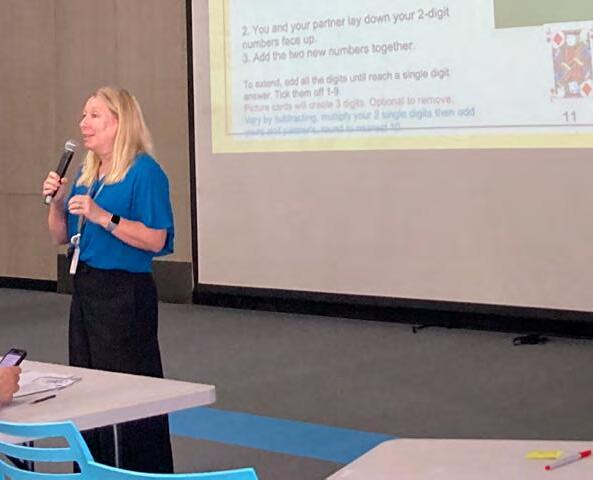

It was also reassuring to some parents that we often provide problems regarded as ‘low threshold, high ceiling’ tasks. This means that all children are capable of achieving the desired goal (solving the problem) but teachers are trained to provide different levels of support in order to enable all children to feel that sense of achievement. Ultimately, we are therefore providing high expectations of all children and giving them the confidence and the tools to reach their goals.
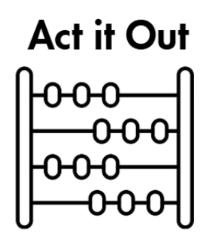
There was definitely a passionate approach to problem solving among lots of the parents, with some reluctant to leave their station until they had completed their problem.
Bangkok Patana’s commitment to enabling parents to be active participants in their child’s learning is exemplified by these informative and interactive workshops. It enables them to understand our curriculum, our pedagogy and the commitment of our teaching team. Opportunities such as curriculum based parent workshops, can only enhance the learning experience of our children, and that is why we are here.
By Dan Hatfield, Year 3 Leader - Curriculum and Assessment
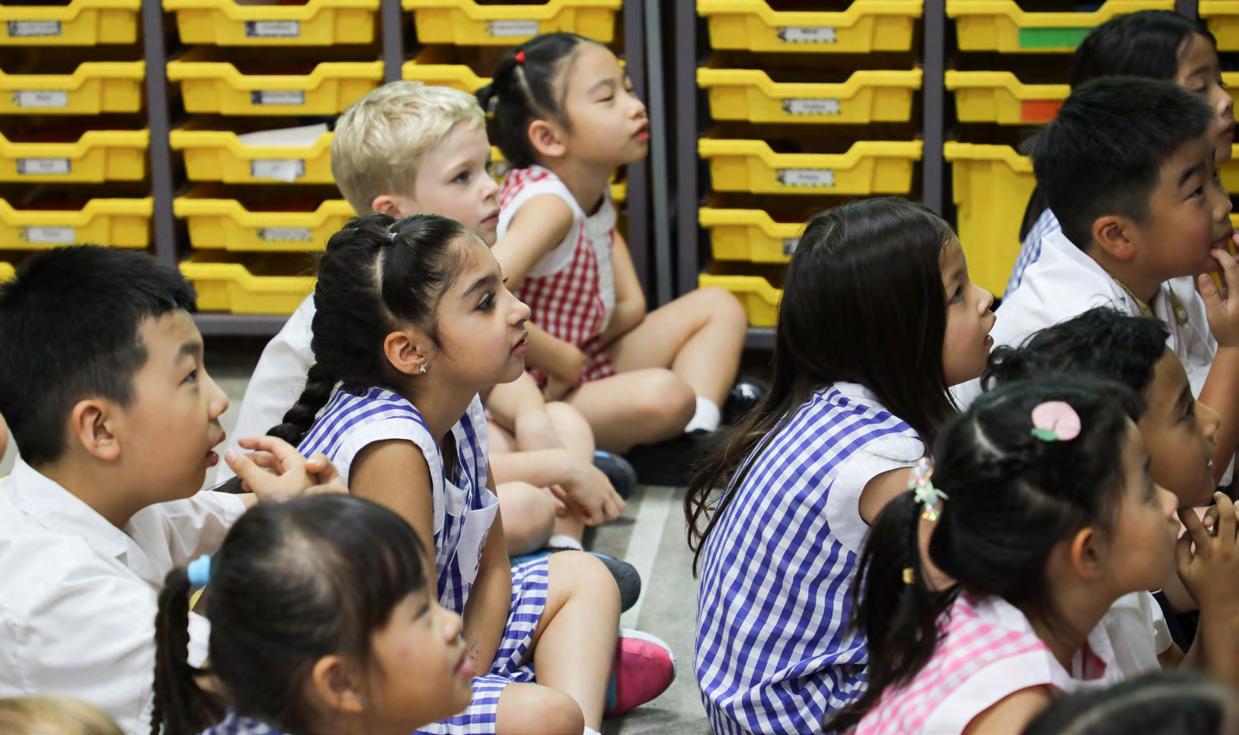

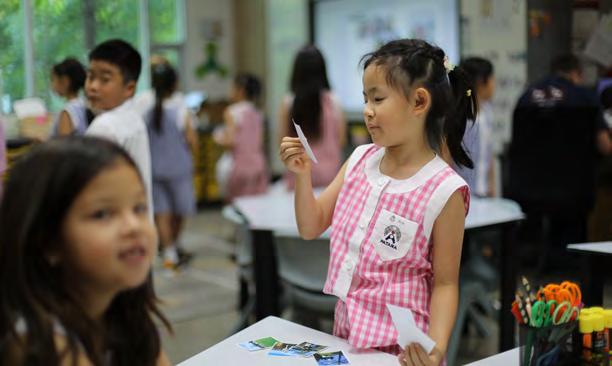
The foundations of international education were built on transformative aspirations - helping students integrate across cultures, appreciate global complexity, and foster international understanding. At Bangkok Patana, we are proud that that these principles underpin our school mission and vision for developing global citizens.
However, there is an argument that we should seek to balance this international outlook with an understanding of Thai culture. As adults, it is easy to appreciate the vibrant cultural heritage of Thailand, indeed it is the reason many of us have chosen to make it our second home. But what about our students, how important is it for them to learn about the country which they are growing up in?
In a recent blog post, Conrad Hughes, the Director General of the International School of Geneva, laments international schools that are ‘disconnected’ from the host country’s language, culture, history and traditions, noting that this can impact
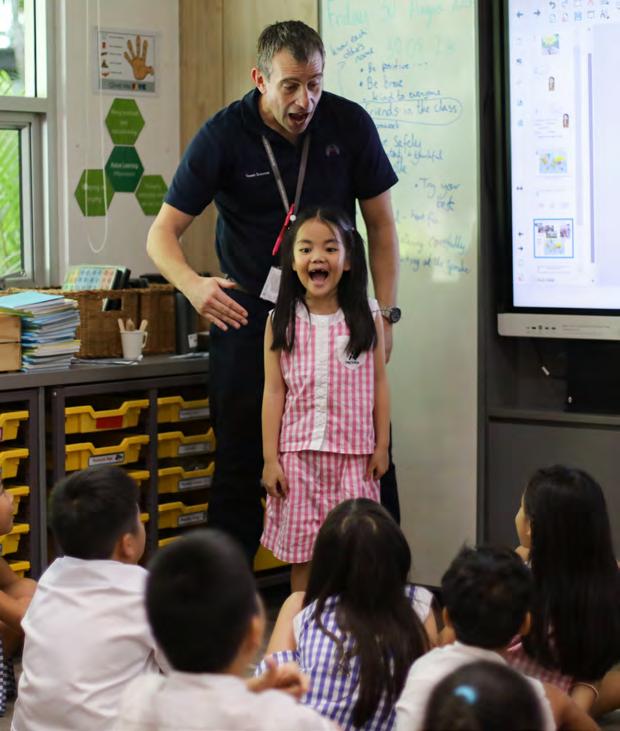

students’ sense of belonging and limit their development of true intercultural competencies.
He observes that, with so many international students growing up in a third culture, the study of host country culture takes on an added significance and may serve to provide an anchor, developing an additional sense of belonging alongside the celebration of their own heritage.
Reflecting on our own context, a cornerstone of our new Primary School vision for successful learning is developing belonging, and in particular emphasising the importance of developing intercultural understanding; building positive partnerships with parents through respect for language, culture, and beliefs; and fostering citizenship and social responsibility through authentic community connections. Meaningful engagement with Thai culture supports this vision by helping all students feel connected to their immediate environment while developing their global mindedness.

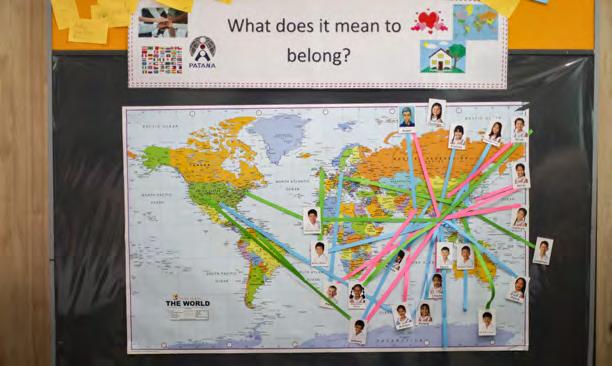
Our vision is also explicit about supporting students to value and recognise their home culture and language. For our Thai students, these learning experiences take on extra meaning as they become the experts in the classroom, sharing their knowledge with friends. It’s wonderful to see their pride as they explain traditions and customs, helping them appreciate their own heritage as they share it with others.
This exchange of cultural knowledge benefits everyone in our community. For all our students, developing a genuine connection with our host nation is therefore not just enriching, but essential. The aim, as Conrad Hughes terms it, is to develop ‘glocal citizens’ - students who maintain their international perspective while developing a genuine appreciation for Thai culture.
Moreover, the demand for this curriculum integration is there from the students. In a recent survey of students from Key Stage 2-Key Stage 4, nearly 95% of respondents attached value to learning about Thailand, with our older students explicitly saying that
it was an important part of their ability to understand and appreciate other cultures, as well as supporting healthy personal identity development.
To ensure our exploration of glocal citizenship across the Primary School is not confined to observing special days and attending specialist lessons, authentic learning experiences have already been integrated into our curriculum.
As students progress through our school, they learn about various aspects of Thailand that build upon existing knowledge and deepens their understanding. Our youngest learners begin their journey in Year 1 with ‘Amazing Thailand’, exploring what makes Thailand special through investigations of local wildlife, flora and geography. They also learn about (and are inspired by) Thai artists.
This appreciation for their host country continues in Year 2, where students learn about the history of Bangkok Patana School and visit Rama 9 park, helping them understand both their immediate community and its place in the broader Thai context.
In Year 3, the curriculum has been reimagined this year to weave Thai cultural elements throughout the units of inquiry. Students study Chiang Mai as part of their ‘belonging’ topic which introduces them


to life outside our capital city, and they also build on their existing knowledge and learn about the geography of Thailand and Southeast Asia which grounds them in their physical location within Thailand and the region. In their unit on ‘imagination’, students explore Thailand’s spiritual and cultural heritage, learning about Thai mythology and Thailand’s rich storytelling traditions (if you want to know why we have the giant Yaksha statues at the airport, then ask a Year 3 student!).
As students move into their final years of Primary, their understanding becomes more complex and analytical. Year 5 students investigate Thailand’s unique ecosystems through their residential visit to Khao Yai’s rainforest, while also examining critical environmental challenges like flooding risk through the lens of Thailand’s geographical position. This environmental focus continues in Year 6, where students study how animals have adapted to Thailand’s distinct climate and landscape, while also exploring contemporary issues like migration patterns into Thailand.
This careful progression demonstrates how we can move beyond surface-level cultural appreciation to help students develop a deep, nuanced understanding. From the excitement of discovering Thai animals in Year 1 to analysing complex migration patterns in Year 6, students build
both knowledge and cultural competency in meaningful, age-appropriate ways.
While there is always scope for further curriculum development and alignment, we are proud of the learning that our students experience and the way we balance our school commitment to global citizenship with a responsibility to help students understand and celebrate the culture of the fabulous country where we all live, work and study.
Moreover, this approach enhances rather than detracts from academic excellence. When students understand the context in which they’re learning, their engagement deepens across all subject areas. By grounding learning in relevant, local contexts, we’re not just developing cultural awareness - we’re building stronger analytical skills and more nuanced understanding across the curriculum.
By thoughtfully integrating Thai cultural elements throughout our curriculum, we are doing more than teaching about Thailand - we are helping to develop true ‘glocal citizens’ who can think globally while acting locally. This balanced approach helps students develop the sense of belonging and intercultural understanding that are central to our vision, while preparing them to shape their world through independence, empathy, and critical thinking.

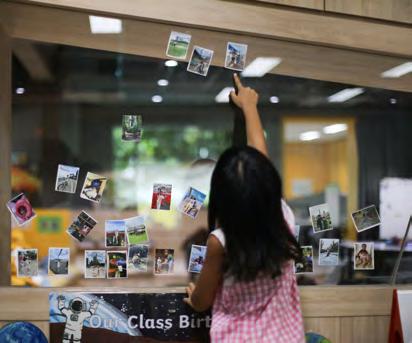

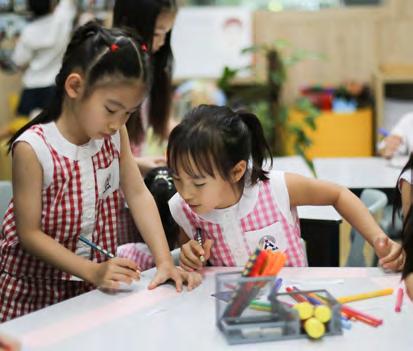


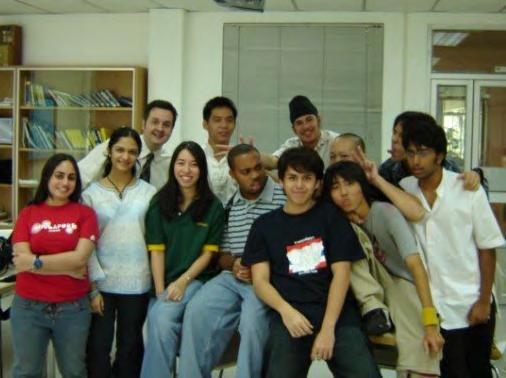



By Purnima Ghogar Ruanglertbutr
Shaping
If you had asked me in 2005, after graduating from Bangkok Patana, whether I would return to teach here, I would have said yes. I loved school, and the desire to return was strong. Today, I am an artist, teacher and researcher whose career spans education, the arts, writing and authorship — a journey that reflects the interdisciplinary path I explore in my TED Talk, ‘Who am I? Artist, Teacher or Both?’. I returned to Patana in 2017 after completing my studies and building my career in Australia and the UK. I was grateful to achieve awards, including the Young Australian Alumni Award (Australian Chamber of Commerce) and the Thai-Indian Youth Achievement Award, all recognising global impact in education and the arts.
As Secondary English Language and Literature teacher, I am also a creative entrepreneur: a published author, performance poet, visual artist and independent curator. One of my proudest moments has been guiding my tutor group from Year 7 through to their graduation in 2025, coinciding with my own Class of 2005’s 20-year reunion. It has been incredible reconnecting with the Patana spirit through the eyes of my students while drawing on my own experiences of navigating the demands of the IB curriculum, enabling me to connect and empathise deeply. Over 33 years, I’ve witnessed Patana’s growth, from campus
expansion to advances in technology and increased staff and student diversity. Now in my eighth year as a teacher here, I feel privileged to be part of a community that enables educators to thrive by embracing innovation and visionary leadership. From Passionate Student to Inspiring Educator
My love for English and Art, instilled by educators whose zest was contagious, shaped my journey from student to teacher. These subjects were my favourites at school, sparking a passion for inspiring others. I am fortunate now to pass on this love to my own students. Another full-circle moment has been working alongside my former teachers, such as Ian McDonald and Grant Robertson, whose influence and dedication — like that of many others, including Keri Keelan, Claire Bridgman, Peter Hockley and our late, legendary Head of Year, Simon Lawrence — continue to guide my professional approach.
After earning a Bachelor of Creative Arts (Honours) at the University of Melbourne, I pursued a Master of Teaching (Secondary) through the New Generation International Postgraduate Award scholarship. My work as an Education Officer at the National Gallery of Victoria, the Ian Potter Museum of Art and other art institutions culminated in a Master of Art Administration from the University of New South Wales. This led to numerous art-related roles, including Manager of the Art Association of Australia and New Zealand Conference, Curator at the Melbourne Festival of Ideas, Editor of the Journal of Artistic and Creative Education and the Australian Wildlife Art Foundation.
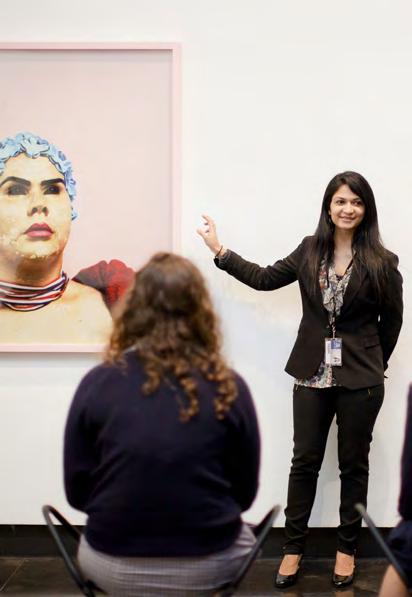



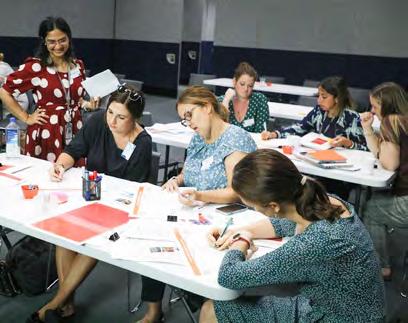
and Creative
As an author, I’ve published 11 books across creative writing, arts journalism and educational resources. My writing, featured in The Melbourne Review, Arts Hub Australia, The Wee Sparrow Poetry Press, Red Room Poetry Sydney, The Nation, The Sydney Morning Herald, The Age, The Conversation and others, includes the ‘Inspired English’ textbook series published by Macmillan Education, which integrates art into creative writing and critical thinking. I am currently developing a resource to inspire poetry through art, helping students and adults connect with creative writing and literature in accessible and innovative ways.
Researcher and Public Speaker: Exploring the Intersection of Art and Literacy
As a researcher and public speaker, I lead in arts integration, developing visual literacy and critical thinking. My research, published in journals such as Australian Art Education, English Australia and The Canadian Review of Art Education, explores the intersection of art and education. This interest began while as a researcher and lecturer at the Melbourne Faculty of Education and co-founding the Teacher as Artmaker Project, championing the power of creative practice in education.
Spoken Word Artist: Amplifying Voices for Change
My poetry inspires change and amplifies marginalized voices; I perform as a performance poet at various venues, including London’s National Poetry Library, Collage Arts, Whitecross Street Festival, Wordsworth Grasmere and in Thailand at the ASEAN Forum, the British and Australian Chambers of Commerce, our school and in the USA at Phoenix Books and the International Women’s Day organisation. Currently writing my debut poetry book, my poems explore themes such as women’s empowerment, activism, identity and mental health, often drawing inspiration from art, nature and shared human experiences. Through launching and facilitating the Poetry Showcase ECA at Patana, I work with students to explore global issues and support them in raising


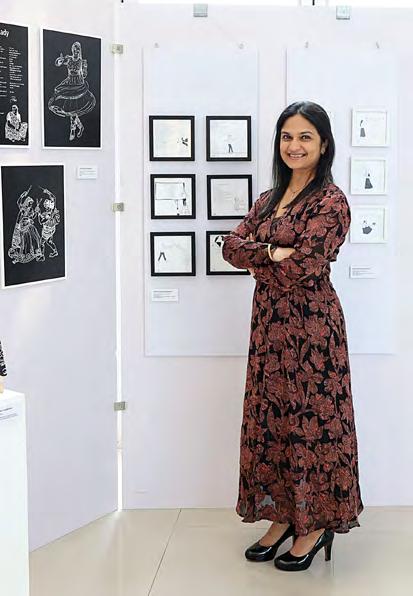

their voices for positive change, while developing confident public speaking skills and enhanced creativity.
Visual Artist: Fusing Heritage and Art – Affirming Identity through Visual Expression
My visual art reflects an aesthetic fusion of my Indian heritage and Australian-Thai identity, blending visual and written expression. Working across photography, painting, printmaking and illustrated poetry, I’ve exhibited in Melbourne, Sydney, London and Bangkok.
Curator: Curating Exhibitions that Connect and Inspire Change
A highlight at Patana has been launching and leading the Teachers as Practitioners Project (TAPs) — a CPL programme that curates exhibitions to showcase staff creativity and build an inclusive, supportive community where educators are valued as artists. Through a culturally responsive approach, my global exhibitions explore contemporary issues, highlight suppressed narratives and celebrate artistic diversity through catalogues and programmes that resonate with diverse audiences.
Bridging Education and Creativity: Impact of Passion-Driven Work and Creative Practice
In a world demanding innovation, an interdisciplinary life is essential: we need more art, more voices and greater diversity of expression. Through teaching, industry experience and research, I empower learners to think critically, engage globally and value diverse perspectives. I have had the privilege of guiding students who have delivered TED Talks, won poetry slams and published books. My work aims to demystify career paths, support multi-passionate individuals and champion creativity as an international voice leading this shift. At Patana, I realise my potential as both an educator and a creator, lead by example, celebrate the creative contributions of others and look forward to what lies ahead.
Website: www.purnimacreations.com

Nandita Valiramani on Reinvention, Resilience and the Climate Fight That Found Her
As Nandita Valiramani stepped into her final year at Bangkok Patana School with the Class of 2020, she pictured a chapter marked by tradition — long-anticipated milestones, heartfelt farewells and the rituals of closure. Instead, the world shifted beneath her feet.
“I think it was early March when the news dropped,” Nandita recalls. “The pandemic hit, the school shut down and suddenly, our last day as Seniors came without warning.” A once carefully scripted ending to her school years dissolved overnight. For the first time in history, the IB exams were cancelled.


For Nandita, there was a strange relief in the chaos. “Honestly, it felt like a blessing in disguise. I was one of those students who really focused on my IAs — I poured my heart into them. So, when the grading algorithm took over, it was wild, unpredictable...but I hoped my work would still shine through.”
Despite the disruption, the Patana spirit endured. Led by Head of Year Matthew Jones, the Class of 2020 received a heartfelt — and unexpectedly beautiful — graduation ceremony. “It was more than I could have hoped for at the time,” she says, a smile softening the memory.
Nandita took the next bold step: flying across the world to The University of British Columbia (UBC) in Canada, where she graduated in 2024 with a major in Psychology and a minor in Commerce — a
surprising pivot from her IB Theatre roots. But for Nandita, the transition was anything but random. “Theatre and psychology aren’t that far apart. Both are about understanding human behaviour, perspectives and emotions — just through different lenses.”
While studying, she also rediscovered a passion that had quietly begun at Patana: Sustainability. “I took ESS (Environmental Systems and Societies) at Patana. Mr Smith was phenomenal. Watching documentaries like Blackfish and learning about the Taiji dolphin slaughter really ignited something deep inside me.”
After interning with a wildlife protection organisation and raising awareness about elephant tourism and factory farming, she felt the spark grow into something stronger — a purpose.

Back at UBC, Nandita found herself at the Sustainability Hub, working as a Climate Action Plan Lead while finishing her studies. It was a part-time job, but one that changed everything. “When I got the acceptance email, I thought, ‘Okay, we’re doing this.’”
Then came graduation — and the world, once again, forced another pivot. Despite dreams of staying in Canada, a saturated job market and a feeling that “the signs were pointing home” led Nandita back to Thailand.
It wasn’t easy. “Coming back was heartbreaking. My friends were scattered around the world, I hadn’t lived here for three years and it felt like starting over.”
But destiny had plans. An internship opportunity at a chemical manufacturing
company came her way. She threw herself into the role of Sustainability Intern — her fifth internship in six years — and dazzled. By December 2024, she had officially landed a full-time role as a Sustainability Coordinator.
“My work lights a fire under me every single day,” she says. “The team is incredible — accessible, supportive, dynamic. I feel like I’m exactly where I’m meant to be.”
Within the company, she splits her time between reporting and supply chain sustainability — balancing compliance with emerging global standards and diving into the ‘belly of the beast’, ensuring environmental best practices are woven into every step of the production process.
Beyond her professional life, Nandita
continues to stay connected to her roots, helping grow the Bangkok Patana Alumni network, driven by a vision of making the alumni community stronger and more vibrant.
Looking back, the twists and turns — the cancelled exams, the dashed plans, the forced homecoming — weren’t detours. They were the making of her.
“I’ve always been someone who loves to be challenged. I thrive outside my comfort zone. Now, I get to do meaningful work that excites me every single day,” she says, her voice a mix of passion and gratitude.
For Nandita Valiramani, Life After Patana isn’t just about finding a career. It’s about finding her fire — and letting it light the way.
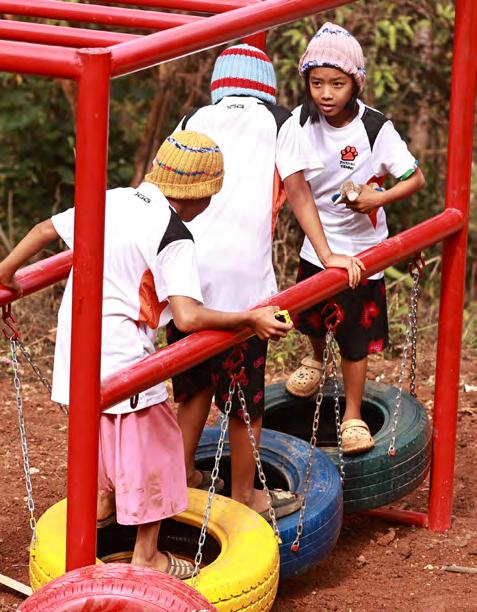

By Coke Smith, Curriculum Leader, Environmental Science
Pang Hua Village in Chiang Mai’s Wiang Haeng District has been a destination for dozens of our Bangkok Patana School students for eight years now. Most people know of this very remote Lisu tribe village as ‘The Solar Village’, a place where hundreds in our community have given so much.
I am often asked how this all began. Why that village? Well to make a long story short, it all started back when a friend, Khun Taew, and I were grabbing a quick bite to eat together here in Bangkok years ago and the topic of her hilltribe ethnicity came up. Having studied hill tribe ethnography at UC Berkeley, and taught a course on hill tribes at Peninsula College near Seattle, I have always been more than passively interested in their cultures. Thailand is home to six hilltribes – the Hmong, Mien, Lisu, Lahu, Mon, Tai Yai, Akha and Karen.
During our discussion, I learned Taew was Lisu, a tribe that comes from Myanmar and northwestern Thailand. We had a good chat about the Lisu and her home village. I learned that her village was extremely remote and had no amenities such as running water, electricity or even a decent road to access the village. This intrigued me. I asked if her village would like to have such amenities as electricity. “Of course!”, was the answer to my rather silly question. The wheels in my brain started turning.
This all happened during my first year here at Bangkok Patana School. As the new Environmental Science Teacher, I was invited to co-mentor the Student Environmental Committee (SEC). As a newbie I was a bit reluctant to even bring up an idea for a new mega project to a group of kids and colleagues who really didn’t know me at all. But I went for it. I asked the SEC, “What


would the group think about working to raise money for solar power to a village deep into the mountains of Northern Thailand?” After a bit of back and forth, it was unanimously decided that we would raise money to do exactly that. It was truly an easy sell!
I feel like I should say, “the rest is history” but so much has happened within this project that we need to discuss what we as a community have accomplished.
It didn’t take long to realize that providing a large solar array to such a remote and inaccessible village was going to be logistically and economically impractical. We teamed up with Energreen Asia as a corporate sponsor, and they gave us the idea of providing individual solar kits that each house could use and own individually. These kits were amazing – they could be used to power cell phone chargers, laptops, small appliances and several indoor lights for an individual hut.
My SEC team, now affectionately dubbed, ‘The Solar Village Team’ got to work. We raised funds for nearly 30 solar kits our first year! Not only were we planning on donating these kits, we were going to travel to the village and help install them! Over 20 Bangkok Patana School students flew all the way to Chiang Mai and travelled several hours overland, some of which required 4x4 vehicles, to Pang Hua Village where we met our village friends for the first time.
After a bit of an awkward meeting, with our village clearly not quite believing we actually came, we broke into groups and our students all went to various homes in the village and installed the panels. Watching the students get down to work so gently and efficiently was quite a sight. Seeing
the eyes of the villages and our kids light up with the light provided by the solar panels for the first time ever in the homes of these villages was an experience I will never forget.
Now looking back, I think with almost disbelief with what we have accomplished. The Solar Village has 72 homes with solar power! We’ve donated thousands of clothing and winter wear. We designed and built a wonderful playground for the children of the village. We’ve also added appliances to the solar kits such as oscillating fans. And last year we donated five laptops to worthy students in the village! There have been over one hundred Bangkok Patana School students who have travel to Pang Hua with more surely to come.
I am often asked why we chose such a remote village. Why not someplace more accessible on the main road? What I learned early on was that the villages along the main roads in Chiang Mai and Chiang Rai are often donation hubs for many causes in Bangkok and beyond. Many corporations satisfy their Corporate Responsibility obligations with these villages, which are often overloaded with donations while the very remote villages often left without any assistance at all.
Watching our students experience the true spirit of giving with no expectation of anything in return is a beautiful thing. The Solar Village group even has students who have travelled nearly every single year to the village – some since Year 6! I’ve been told so many times in so many ways how our students get a true feeling of joy knowing they were personally involved in making someone’s life just a little better. I firmly believe it is the type of Global Citizenship we at Bangkok Patana strive for.


Bangkok Patana's IB career-related Programme allows students to deepen their specialised knowledge in the areas of Business or Ar ts and Design, whilst benefit ting from the renowned Patana learning environment.
Find out how to give your child a focus to their passion email admissions@patana.ac.th



